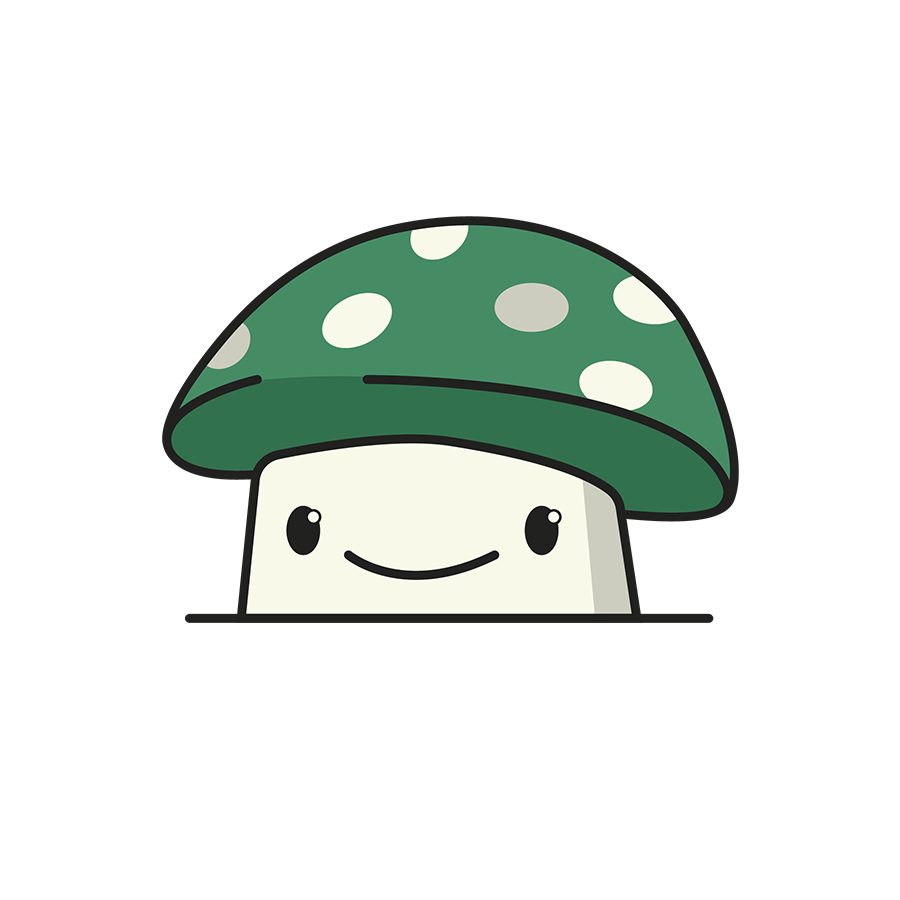Intro to Sleep and Stress Supplements
Getting adequate sleep and managing stress are two of the most important factors for overall health and wellbeing. Yet, in our 100mph modern world, many people struggle with insomnia, anxiety, and the effects of chronic stress.
While pharmaceutical sleep aids and anti-anxiety medications are widely prescribed, they often come with unwanted side effects and the potential for dependence.
Fortunately, several natural supplements have shown promise for promoting restful sleep and easing stress and tension.

The four science-backed natural options we discuss below will help you relax, unwind, and get the restorative sleep you need.
1. Mushrooms for Sleep: The Power of Reishi
When it comes to natural sleep aids, medicinal mushrooms are generating a lot of buzz in the scientific community. While various mushroom species have been used traditionally for centuries to promote relaxation and sleep, modern research is uncovering the mechanisms behind their effects. One of the most well-studied mushrooms for sleep is Reishi (Ganoderma lucidum).
Reishi mushrooms contain compounds called triterpenes that have been shown to have a calming, sedative-like effect on the nervous system. A 2012 study published in the Journal of Ethnopharmacology found that Reishi extract significantly increased total sleep time and non-rapid eye movement (NREM) sleep time in rats. The researchers concluded that Reishi’s sleep-promoting effects were likely due to its ability to increase levels of gamma-aminobutyric acid (GABA), a neurotransmitter that helps calm brain activity.
Human studies on Reishi for sleep are still limited, but a small trial published in Pharmacology, Biochemistry and Behavior in 2007 found that Reishi extract improved sleep quality and reduced fatigue in people with neurasthenia, a condition characterized by physical and mental exhaustion. Participants who took Reishi reported falling asleep faster and waking up feeling more refreshed.
Beyond its potential sleep benefits, Reishi may also help reduce stress and anxiety. A 2018 review in the International Journal of Medicinal Mushrooms noted that Reishi has adaptogenic properties, meaning it can help the body adapt to and resist the effects of stress. The triterpenes and polysaccharides in Reishi appear to modulate the stress response and support healthy cortisol levels.
While more research is still needed, the current evidence suggests that mushrooms for sleep, particularly Reishi, may be a safe and effective natural option for those struggling with insomnia or stress-related sleep issues. Reishi supplements are available in various forms, including powders, tinctures, and capsules. As with any supplement, it’s best to consult with a healthcare provider before adding Reishi to your routine, especially if you take medications or have any underlying health conditions.
2. L-Theanine: Nature’s Relaxation Molecule
L-theanine is an amino acid found naturally in tea leaves, particularly green tea. It has gained popularity as a supplement for promoting relaxation and improving sleep quality without causing drowsiness. L-theanine is often available in supplement form, including as L-theanine gummies, which offer a convenient and tasty way to consume this beneficial compound.
One of the primary ways L-theanine supports sleep and stress reduction is by increasing alpha brain wave activity. Alpha waves are associated with a state of “wakeful relaxation” – the kind of calm but alert feeling you might experience during meditation or just before falling asleep. A 2008 study published in the Asia Pacific Journal of Clinical Nutrition found that L-theanine increased alpha brain waves and induced a relaxed state in participants.
L-theanine also appears to influence levels of neurotransmitters involved in sleep and mood regulation. Research has shown that L-theanine can increase levels of GABA, serotonin, and dopamine in the brain. These neurotransmitters play crucial roles in regulating sleep-wake cycles, mood, and stress responses.
A 2019 study in the journal Nutrients investigated the effects of L-theanine on stress-related symptoms and sleep quality in healthy adults. Participants who took 200mg of L-theanine daily for 4 weeks reported significantly reduced stress-related symptoms and improved sleep quality compared to the placebo group. The researchers noted improvements in sleep latency (time to fall asleep), sleep disturbance, and use of sleep medication.
For those interested in trying L-theanine gummies or other forms of this supplement, the typical recommended dose ranges from 100-400mg per day. Many people find L-theanine particularly helpful for reducing nighttime anxiety and racing thoughts that can interfere with falling asleep. Unlike some sleep aids, L-theanine doesn’t cause next-day grogginess or impair cognitive function.
While L-theanine is generally considered safe for most people, it’s always wise to speak with a healthcare provider before starting any new supplement regimen. This is especially important if you’re pregnant, nursing, or taking medications that affect neurotransmitter levels.
3. Magnesium: The Relaxation Mineral
Magnesium is an essential mineral that plays a crucial role in over 300 biochemical reactions in the body, including many related to sleep and stress regulation. Despite its importance, many people don’t get enough magnesium from their diets. Low magnesium levels have been linked to insomnia, anxiety, and increased sensitivity to stress.
One of the ways magnesium promotes sleep is by regulating the production of melatonin, the hormone that controls our sleep-wake cycles. Magnesium also binds to GABA receptors in the brain, helping to quiet nerve activity and prepare the body for sleep. Additionally, magnesium helps relax muscles and ease tension throughout the body, which can be particularly beneficial for those who hold stress in their muscles.
A 2012 study published in the Journal of Research in Medical Sciences examined the effects of magnesium supplementation on insomnia in elderly patients. The researchers found that participants who took magnesium supplements for 8 weeks experienced significant improvements in sleep efficiency, sleep time, and early morning awakening. They also reported higher levels of melatonin and lower levels of cortisol, suggesting that magnesium helped regulate their sleep-wake cycles.
Magnesium may also help reduce symptoms of anxiety and depression, which often go hand-in-hand with sleep issues. A 2017 review in the journal Nutrients concluded that magnesium supplementation may be effective for mild-to-moderate depression and anxiety symptoms. The authors noted that magnesium’s effects on neurotransmitters and the stress response likely contribute to its mood-boosting properties.
When it comes to supplementing with magnesium for sleep and stress relief, there are several forms available. Magnesium glycinate is often recommended because it’s well-absorbed and less likely to cause digestive side effects than some other forms. Magnesium threonate is another form that has shown promise for cognitive and sleep benefits, as it appears to cross the blood-brain barrier more easily.
The recommended dietary allowance (RDA) for magnesium is 310-420mg per day for adults, depending on age and gender. However, some studies on magnesium for sleep have used higher doses, typically in the range of 500mg per day. As with any supplement, it’s important to consult with a healthcare provider to determine the right dose for your individual needs.
4. Ashwagandha: An Ancient Herb for Modern Stress
Ashwagandha (Withania somnifera) is an herb that has been used for thousands of years in Ayurvedic medicine to promote relaxation and overall wellbeing. In recent years, scientific research has begun to validate many of its traditional uses, particularly for reducing stress and improving sleep quality.
As an adaptogen, ashwagandha helps the body maintain balance in the face of physical and emotional stressors. One of its primary mechanisms of action is reducing cortisol levels. Cortisol, often called the “stress hormone,” plays an important role in the body’s stress response. However, chronically elevated cortisol can interfere with sleep and contribute to anxiety and other health issues.
A 2019 double-blind, randomized, placebo-controlled study published in the journal Medicine examined the effects of ashwagandha on stress and sleep quality. Participants who took 300mg of ashwagandha root extract twice daily for 10 weeks reported significant improvements in sleep quality and mental alertness upon waking compared to the placebo group. The ashwagandha group also showed lower cortisol levels and reduced stress and anxiety scores.
Another study, published in the Indian Journal of Psychological Medicine in 2012, found that participants who took 300mg of ashwagandha root extract twice daily for 60 days experienced a 69% reduction in anxiety and insomnia symptoms, compared to just 11% in the placebo group. The researchers also noted significant reductions in cortisol levels in the ashwagandha group.
Beyond its effects on stress and sleep, ashwagandha may offer additional benefits for cognitive function and mood. A 2014 systematic review in the Journal of Alternative and Complementary Medicine concluded that ashwagandha has potential benefits for improving cognitive function in certain populations, including those with mild cognitive impairment and bipolar disorder.
Ashwagandha supplements are available in various forms, including capsules, powders, and tinctures. The typical recommended dose ranges from 300-600mg per day, often divided into two doses. As with other adaptogenic herbs, the effects of ashwagandha may take several weeks to become noticeable, so consistency is key.
While ashwagandha is generally considered safe for most people, it may interact with certain medications and is not recommended for pregnant women or those with autoimmune conditions. As always, consult with a healthcare provider before adding ashwagandha or any new supplement to your routine.
Conclusion – Finding the Best Natural Sleep and Stress Solutions
In our quest for better sleep and reduced stress, natural supplements can offer a gentle yet effective alternative to pharmaceutical options. From the calming effects of mushrooms for sleep to the relaxation-promoting properties of L-theanine gummies, nature provides a variety of compounds that can help soothe our overactive minds and prepare our bodies for restful sleep.
Magnesium’s role in regulating sleep cycles and neurotransmitter function makes it a valuable addition to any sleep and stress management routine. And for those dealing with the effects of chronic stress, adaptogenic herbs like ashwagandha offer a holistic approach to restoring balance and promoting overall wellbeing.
While these natural supplements show promise, it’s important to remember that they work best as part of a comprehensive approach to sleep and stress management. Combining supplements with lifestyle changes such as maintaining a consistent sleep schedule, practicing relaxation techniques, and creating a sleep-friendly environment can amplify their benefits.
As interest in natural health solutions continues to grow, ongoing research into mushrooms for sleep, L-theanine gummies, and other natural compounds is likely to uncover even more potential benefits and applications. By staying informed about the latest scientific findings and working with healthcare providers to develop personalized strategies, we can harness the power of nature to achieve better sleep, reduced stress, and improved overall health.


